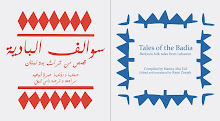"Captured water is the most important part of Israel's total water supply. The four most important sources of Israel's water at the time of this writing were: "ground water; the Jordan watershed; lesser surface waters; and recycled water and water from desalinization plants," for a total of just less than 2,000 MCM per year.(24)
Israel's significant sources of water are currently exploited, and the only other source is the Litani, which, in order for Israel to use it, would have to be in Israel's possession, which could possibly happen through seizure. The only other source of additional water would be recycled water.
...
For instance, there is a lack of domestic running water for 22 villages immediately north of the springs where the Litani rises, in the province of Biqa'a. In the south, there are 36 villages which lack domestic running water. It is easy to see that if Lebanon gave Israel the waters of the Litani, opposition from antigovernment forces, especially the fundamentalist movement, would be strengthened, and there would be continued instability in Lebanon.(43) For instance, if Lebanon gave the Litani to Israel and denied the Shia Muslims, who are predominate in the area, use of the water for agriculture and domestic purposes, they would be increasingly frustrated with the Lebanese government. An example of this is that in 1974 there were rumors that water from the Litani were being diverted to Beirut to meet predicted shortages, which caused large anti-governmental demonstrations.(44) "
Refreshing to see someone (in the US) still talks about the Israeli schemes to take Lebanon's water. This is especially relevant at a time when some of the Lebanese are preparing the institutional arrangements for "sharing" the Litani water with Israel if their plans for normalization go ahead. Remember: selling the water starts with its commodification and its privatisation. You have been warned.
Note: My friend Anna informs me that this is an article dating back to 1997. Most of it is still relevant today. Thanks Anna.
Monday, May 7, 2007
Subscribe to:
Post Comments (Atom)








+081.jpg)



No comments:
Post a Comment